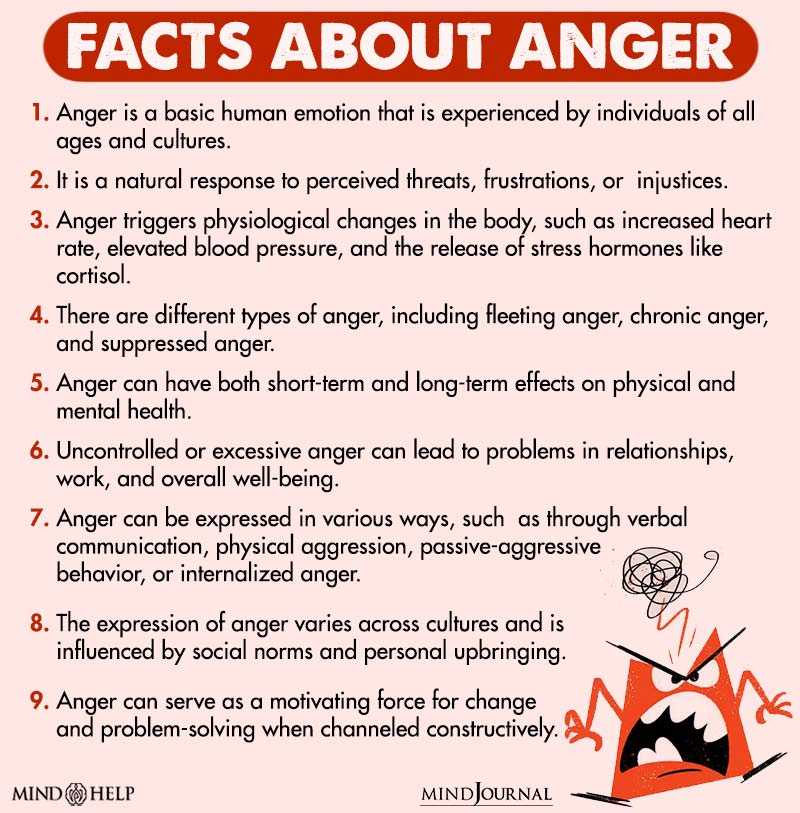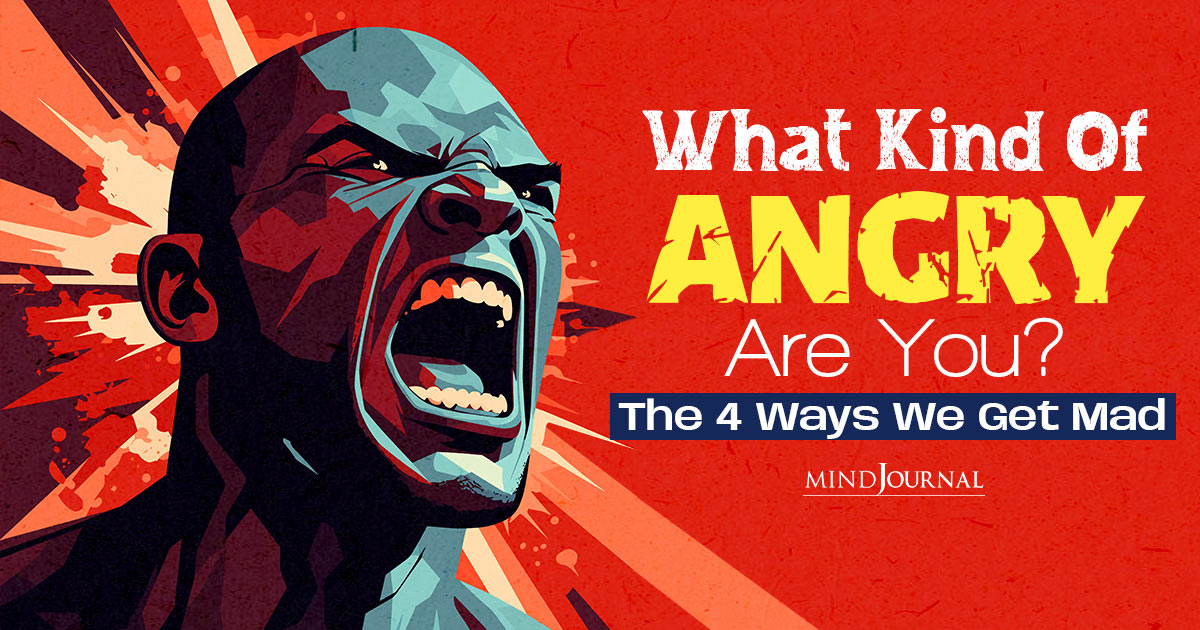Everyone gets angry at some point, and anger is probably one of the most common emotions we feel. But did you know there are different types of anger, namely, 4 types of anger? This article is going to talk about the different types of anger and how they look like. So, what is your anger style? Let’s find out!
Anger may rear its emotional head in irritation and annoyance, self-pity and withdrawal, envy and resentment, or vengeance and violence. Our anger may fill the room with dominance or veil itself in anxiety or avoidance.
Those who internalize anger may question whether they have the right to be angry and avoid direct confrontation. They stuff their anger down to prevent offending, being disliked, or losing control.
Those who externalize anger resort to blaming, shaming, and engage in provocation or even aggression. They escalate in an attempt to gain control, demonstrate an image of strength, and avoid expressing underlying emotion.
There are at least two dimensions of anger—its emotional manifestation, whether we tend to physiologically escalate as we emotionally agitate or remain physiologically calm; and the manner in which we address the object of our anger, whether more directly or indirectly.
Related: How The 10 Most Common Anger Styles Affects Intimate Relationships
4 Types Of Anger
1. Explosive Anger
Someone whose anger is overt may be labeled “hot-headed,” may be verbally and even physically explosive as a reaction to underlying dysregulation, and is both agitated and direct in addressing the object of their anger.
There are several ways to overpower in conflict: Respond immediately with anger, slam doors, raise your voice, and point your finger, interrupt, disagree, and dominate.
Overreacting will result in others fearing or fighting you, and you will fail to effectively navigate difficult issues. Anything meaningful will become overshadowed by resentment, and you may maintain a false sense of control over your life.

2. Passive-Aggressive Anger
There are those who become agitated yet address their frustration in indirect and incongruent ways—their actions do not match up to their words—and it’s difficult to know how to respond.
Here are a few ways to spread your bitterness: Indirectly attack the target of your anger, act like you’re not angry, but drop a snide zinger with a smile, and ruminate.
Ambiguity practically ensures that others will be both confused and irritated by you and that the source of your underlying fury will remain unresolved. Your mixed messages are a kind of learned helplessness, perpetually preventing any meaningful outcome.
3. Avoidant Anger
Then there are those who have a reflexive tendency to turn their anger inward, to emotionally implode. They may be seen at times as evasive and distant as they repress difficult emotions.
There are multiple ways to evade conflict: Walk away from confrontation; suppress difficult thoughts and feelings; and mean well, but when the going gets tough, hide. Others will sense an emotional void and pressure you to open up, or just avoid you.
Know that your avoidance is not the opposite of an explosive reaction; it is anger turned inward. Be prepared for depression or worse.
4. Diplomatic Anger
I would cast ideal anger as a kind of diplomacy. The diplomat is direct yet calm and viewed by others as controlled, assertive, flexible, responsive, and constructive in the face of conflict and frustrating circumstances.
There are several ways to respond well: Openly admit to being angry, and remain respectful. Negotiate with civility. Others will respect you even if they lose control themselves.
A slow pace combined with respectful posture and tone will help in a difficult moment. Your peace-ability will be remembered when the fury fades.
Related: How To Help Children Cope With Anger And Angry Feelings
What About You?
One poster offered a variant: the Credible Hulk. I laughed because I identify with it. It read, “You won’t like me when I’m angry, because I always back up my rage with facts and documented sources.” I call the Credible Hulk “the hot-headed diplomat,” because he is moderately direct, yet visibly agitated.
There are many varying combinations of these styles. What do you do when you are angry? What would you call your anger style?
Whatever your style, the research on rage has indicated mistakes to avoid when your feathers are ruffled—holding it all in, letting it all out, seeking revenge, or becoming physically aggressive.
During the early part of the 2nd century, the Greek philosopher Epictetus wrote, “Suffering arises from trying to control what is uncontrollable or from neglecting what is within our power.”
You can respond with greater insight, courage, and skill. Slow your response, listen to your self-talk, identify unnecessarily hot and self-angering thoughts, substitute cooler and more rational thinking, express your feelings in a safe environment, analyze the costs and benefits of angering on, and work on developing the ability to empathize in the midst of anger.
Diplomatic anger is assertive rather than either aggressive or avoidant, flexible rather than rigid, and ultimately constructive rather than destructive. It avoids accusation or name calling, and requires that we know how we feel and what we need of others before we speak.
When nothing else has worked, it is often necessary to drop our anger. This requires understanding our own limits and realizing we cannot change or control everything.
Yet you may find it difficult to do so. When anger is frequent, debilitating, or results in ongoing disruptions in thinking, feeling, behavior, or relationships, consider seeking the help of a therapist.
Copyright @ Blake Griffin Edwards
Written By Blake Griffin Edwards This article was also published at Psychology Today









Leave a Reply
You must be logged in to post a comment.